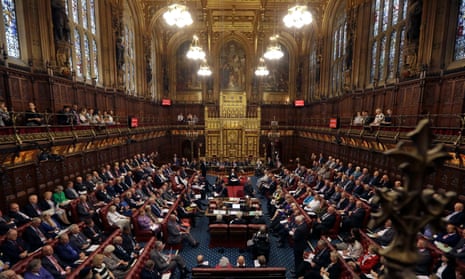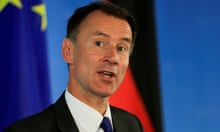Peers voted by a majority of 102 to bring into force legislation requiring newspapers and media organisation to pay the costs of any claims made against them by phone-hacking victims.
A cross-party coalition of peers voted by 282 to 180 for the implementation of a key recommendation of the Leveson inquiry that the victims of hacking by newspapers and other media should be protected from paying the costs of bringing their claims in the civil courts.
The scale of the government defeat – by a majority of more than 100 – on an issue that is so contentious among MPs and peers may make it difficult for ministers to overturn in the Commons, where the Conservatives only have a majority of 12.
Peers had been debating the report stage of the “snooper’s charter” legislation – the investigatory powers bill, when an amendment was put following complaints that the provision had been put on the statute book three years ago but had not been implemented by John Whittingdale when he was culture secretary.
The Lords’ vote reprises the prospect of a “Leveson-lite” regime for press regulation. The 2013 Crime and Courts Act proposes that the government can force publishers who aren’t signed up to a regulatory regime recognised by the royal charter-backed press recognition panel to pay both sides’ costs even if they win any libel and privacy cases brought to it.

No newspaper is signed up to a royal charter-backed regulator. Ipso, which handles complaints for the Daily Mail, the Times, the Sun and the Daily Telegraph said it had no intention of doing so. The Guardian has its own readers’ editor and is not a member of Ipso.
Lord Prescott, the former Labour deputy prime minister, told the House of Lords that Whittingdale had “cheered up the press” when he announced last October at a Society of Editors dinner that he did not intend to introduce the costs measure despite the fact it had been passed by parliament in the Crime and Courts Act in 2013.
One Liberal Democrat peer, Lord Strasburger, said after the vote:
Ministers had tried to resist a vote on the issue with the leader of the Lords, Earl Howe, appealing to peers not to press the issue, arguing that the Leveson vote was unrelated to the main thrust of a bill on surveillance by the security services.
The minister said he understood peers’ frustration with the lack of progress in implementing the Leveson inquiry report and the government continued to look at the issue closely and was “actively considering” it. He argued it wasn’t “unreasonable for new ministers to take time to understand the issues at play”.
But crossbench peer Baroness Hollins pressed the issue to a vote arguing that it would be an injustice to the victims of phone hacking to pass up the opportunity to make the change. Hollins said the protection for victims proposed was equivalent to that which would have existed if the government had put into effect section 40 of the Crime and Courts Act 2013.
She complained there had been no explanation why ministers had announced last year that they were not minded to implement the section – a change of policy which broke the cross-party agreement and “betrays promises made to both houses and to press abuse victims”.
Independent crossbencher Baroness O’Neill of Bengarve said protecting journalistic sources was a profoundly important liberal purpose: “But the misuse of those sources whether by invention or by illegal interception of private communication or by forms of blackmail and the like is not a good liberal cause.”

She said additional protection for journalistic sources needed to be balanced with additional protection for those “abused” by journalists.
Prescott also supported the move, insisting the Lords did not want to change government policy but implement legislation already agreed. He said it would ensure justice for “people who cannot afford to get justice in a case in which they have been offended against by phone hacking”. They were backed by former Tory lord chancellor Lord Mackay of Clashfern.
The royal charter proposal infuriated the newspaper industry, leading the Telegraph’s editorial director, Guy Black, to warn it would create “probably the harshest press regime anywhere in the free world, and much of the developing world”.
When Whittingdale announced the delay in implementation in October 2015 he told newspaper executives: “Given the changes under way within the industry, the introduction of the new exemplary damages provisions, and the pressures on the industry, I question whether this additional step, now, will be positive and will lead to the changes I want to see.”
No press regulator has yet won the backing of the press regulation panel so the threat to any newspaper groups with outstanding phone-hacking claims could be only theoretical as the costs measure will not apply until a body is first recognised as an approved regulator.










